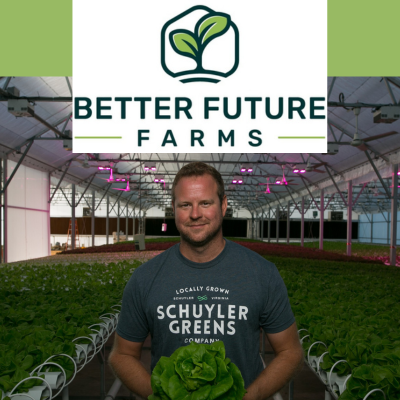
Talking Automation, Sustainability and Scale With Better Future Farms Co-Founder John McMahon
Earlier this month, Virginia Governor Glenn Youngkin announced that Better Future Farms, Inc. will build a new hydroponic greenhouse and processing facility on a 61-acre site in the Louisa County Industrial Air Park. Backed by funding from Generate Capital, a sustainable infrastructure investment and operating platform and a distribution partnership with Taylor Farms, a leading North American producer of salads and healthy fresh foods, the facility is set to come online in 2024. In this month’s CEA Q&A, John McMahon, co-founder/chief operating officer of Better Future Farms and founder of Schuyler Greens, shared insights on their decision to locate in central Virginia’s Louisa County , their sustainability initiatives and long term goals for the company.
What led to the decision to build the new greenhouse and processing facility in Louisa County? What factors made this location the best choice for Better Future Farms?
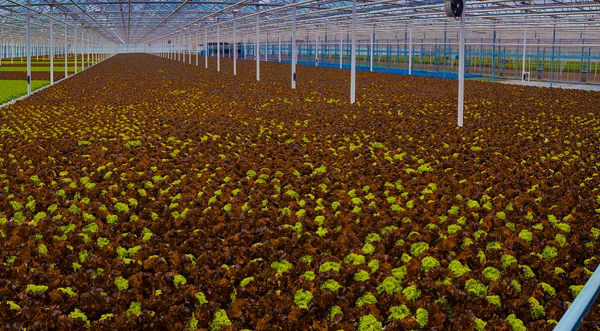 The decision was driven by both the site and infrastructure. My business partner David Drescher and I both live in the Charlottesville area, and Louisa County is the next county over. In central Virginia it’s hard to find the flat terrain needed for a greenhouse facility. This site had that and the right infrastructure in place in terms of electrical capabilities, natural gas, and proximity to large freeways and distribution logistics.
The decision was driven by both the site and infrastructure. My business partner David Drescher and I both live in the Charlottesville area, and Louisa County is the next county over. In central Virginia it’s hard to find the flat terrain needed for a greenhouse facility. This site had that and the right infrastructure in place in terms of electrical capabilities, natural gas, and proximity to large freeways and distribution logistics.
The local support was another key factor. We looked at several different counties and once we talked to Louisa County about the project and what it entailed, they were incredibly supportive and became great partners throughout the process.
We also wanted to build our first project in our own backyard in Virginia, as we’re from the area and didn’t want to be on a plane every week. Leveraging our existing relationships in the CEA industry in Virginia also played a role. The state is very enthusiastic about the future of CEA and government agencies and organizations like the Virginia Department of Agriculture and Consumer Services and the Virginia Economic Development Partnership were very supportive and helpful. And, of course, Virginia itself is a great choice since it puts the facility within a day’s drive of a large population base.
What will differentiate Better Future Farms from other greenhouse/indoor operations?
I’ve been a grower for about 10 years now, so I tend to be a bit cynical when it comes to making big claims. I would say that we’re investing a significant portion of our capital in automation – in the greenhouse, pack line, and growing system. This decision was influenced by owning and operating a smaller greenhouse for years and recognizing the repetitive tasks that are present in greenhouse operations. The goal of automation is not to replace employees, but to automate the tasks that are repetitive and do not add value, freeing up employees to perform more important tasks.
I see automation is a tool in our toolbox. We’re not a technology company. At the end of the day, our job is to be a sustainable business that grows lettuce at the right price. The focus of the investment and all our innovations is to do that as efficiently as possible.
Can you share more about your partnership with Taylor Farms? How will this collaboration help you reach more customers?
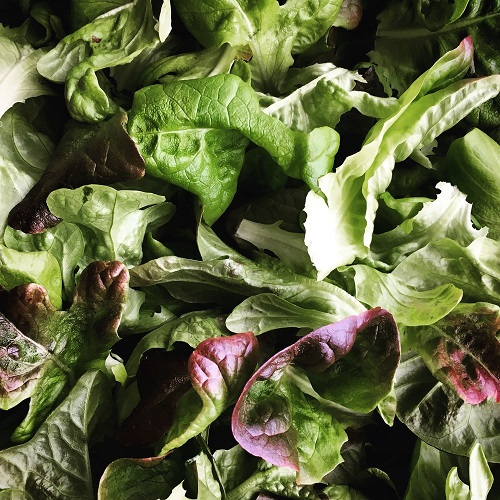 Taylor Farms is one of the largest salad and fresh cut vegetable processors in the world and all our lettuce will be marketed under Taylor Farms’ Earthbound Farms brand. David and I have both been at this for a long time and we know what it takes to build a brand. So, we wanted to team up with an existing brand rather than build a new one from scratch. We talked to several companies and when we met with Taylor Farms, our objectives, philosophies, and values all aligned.
Taylor Farms is one of the largest salad and fresh cut vegetable processors in the world and all our lettuce will be marketed under Taylor Farms’ Earthbound Farms brand. David and I have both been at this for a long time and we know what it takes to build a brand. So, we wanted to team up with an existing brand rather than build a new one from scratch. We talked to several companies and when we met with Taylor Farms, our objectives, philosophies, and values all aligned.
I’m not the type of greenhouse grower seeking to displace field growers. The way the industry is now, greenhouse/controlled environment agriculture production is miniscule compared to what the large California farms put out. But these western growers see a need to diversify the supply chain. Retailers are asking for it because of food safety issues. And, together with post pandemic freight, shipping and other supply chain , water, and weather challenges, it’s gotten more complicated –and more expensive. Greenhouses/CEA can help diversify the supply chain by allowing these large players to grow product closer to the end user.
We have a great relationship with Taylor Farms and are so excited to be working with them. For me, starting as a smaller, niche grower, it’s a huge honor to be growing for the largest lettuce producer.
Can you speak to any specific sustainability initiatives or practices that Better Future Farms will implement in its operations and how they align with Generate Capital’s focus on sustainable agriculture?
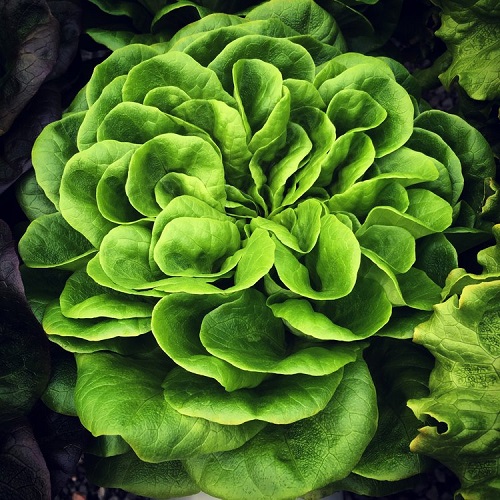 Generate Capital is a leading ESG public benefit corporation focused heavily on building and financing solutions for clean energy, water, waste, agriculture and more. They’d been looking at the CEA sector for some time. While we are their first investment here, I expect they will be very active in this space, and not just with us.
Generate Capital is a leading ESG public benefit corporation focused heavily on building and financing solutions for clean energy, water, waste, agriculture and more. They’d been looking at the CEA sector for some time. While we are their first investment here, I expect they will be very active in this space, and not just with us.
We certainly share their focus on sustainable agriculture and have several sustainability initiatives in our operations.
We are harvesting all our rainwater. Virginia consistently gets 44 inches of rain distributed throughout the year. We expect that 90-95% of our irrigation will be reclaimed water. As part of our 14.5-acre facility, we have a 2-acre retention pond that can hold 2.5 million gallons that we’ll be pulling into the greenhouse and using for irrigation.
We’ll also be using 100% LED lights, so there will be no high-pressure sodium lighting and less energy use.
And we’ll always be on the lookout for even more ways to use the least amount of inputs and energy to be as sustainable as possible.
What are your long-term goals for Better Future Farms? What do you hope to achieve in the next few years?
Our goals are to build out multiple facilities in Virginia and other geographical locations, add different products, and grow our partnership with Taylor Farms.
In terms of crops, we’d like to offer different types of lettuce and, possibly, berries. We want to become a diversified producer. The challenge is you need to marry products that complement each other. For example, lettuce and strawberries work well together because they both travel in the cold chain. Tomatoes and vine crops need to be on a warmer truck.
What’s next for Schuyler Greens? Will you still be involved?
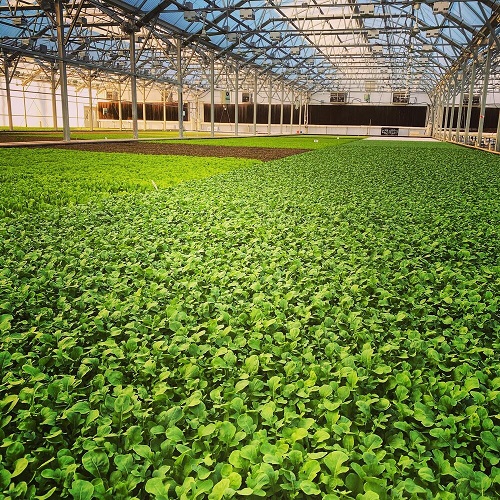 I wouldn’t be doing this new project without the knowledge and experience I gained from launching and building Schuyler Greens. I’ve owned Schuyler Greens for more than 9 years now and it encompasses 225 acres outside of Charlottesville with a greenhouse in the middle. I will be keeping Schuyler Greens separate from Better Future Farms.
I wouldn’t be doing this new project without the knowledge and experience I gained from launching and building Schuyler Greens. I’ve owned Schuyler Greens for more than 9 years now and it encompasses 225 acres outside of Charlottesville with a greenhouse in the middle. I will be keeping Schuyler Greens separate from Better Future Farms.
Schuyler Greens is better off as a traditional farm with a greenhouse on it as we don’t have access to the infrastructure or flat terrain needed to scale up a large greenhouse. The value for me is that Schuyler Greens is a true working farm with cattle, timber and other resources.
We really live in an Amazon world today. The pandemic certainly accelerated some of the structural changes and put a spotlight on supply chain issues. Just like consumers, wholesalers and retailers want product all the time so it’s essential for growers to keep up the pace of demand or risk losing business.
The bottom line is that all farming is economies of scale. To consistently produce every day of the week and be sustainable, reliable, and dependable for your customers –whether you’re a small niche grower or a mega-grower– is hard work. At Schuyler Greens and Better Future Farms, we’re committed to meeting the needs of our customers and partners and are excited about the future.
To learn more about Better Future Farms, visit www.betterfuture.farm
To learn more about Schuyler Greens, visit www.schuylergreens.com
controlled environment agriculture, greenhouse, Hydroponic, irrigation, LED, sustainability, Virginia